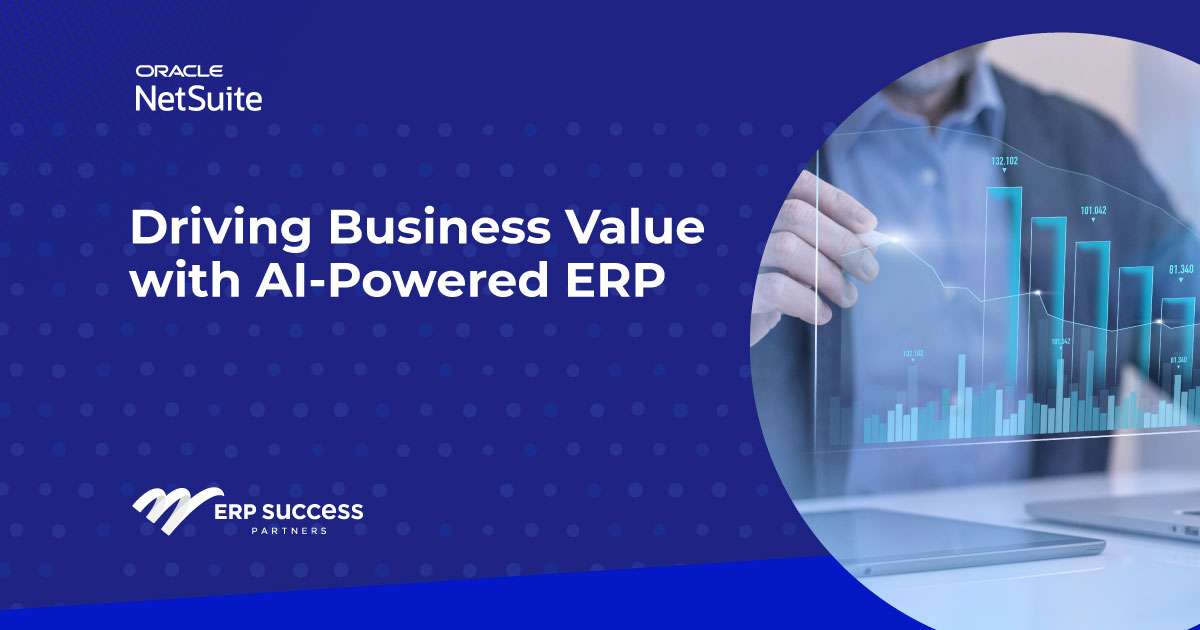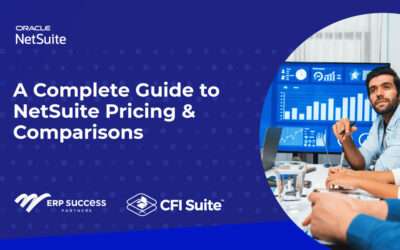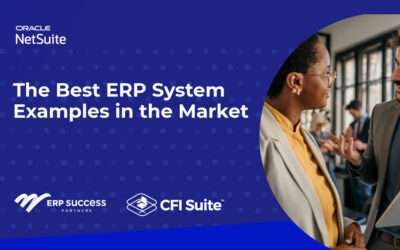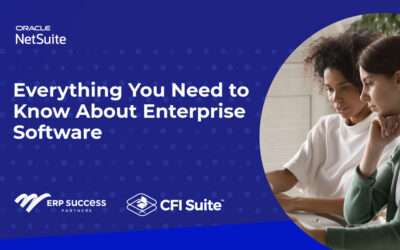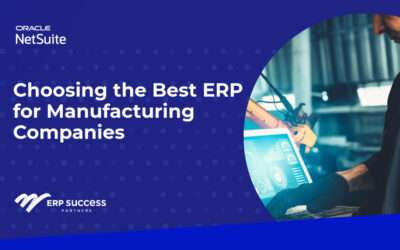ERP systems have evolved from backend record-keeping tools to strategic platforms that drive value across every department of a business. With NetSuite ERP at the core, organizations already benefit from centralized data, efficient processes, and real-time visibility. But the real game changer? Artificial Intelligence.
AI isn’t just a buzzword anymore—it’s a tangible force multiplier. When AI is embedded into ERP systems like NetSuite, it transforms the way organizations operate. From optimizing daily workflows to forecasting with higher accuracy, AI creates real, measurable impact.
In this article, we’ll explore how AI enhances value management in NetSuite ERP—and how this combination leads to higher ROI, smarter decision-making, and long-term business resilience.
Why Value Management Matters in ERP Strategy
Before diving into AI, let’s talk about value management.
Value management in an ERP context refers to identifying, measuring, and maximizing the benefits derived from the ERP system. This includes:
-
Cost reductions and process efficiencies
-
Improved employee productivity
-
Enhanced customer satisfaction
-
Better compliance and risk mitigation
-
Increased profitability
According to a 2023 Forrester report, businesses that actively manage ERP value experience 30–40% faster time-to-benefit and up to 2.5x higher ROI compared to those without structured value management.
How AI Unlocks Value in NetSuite ERP
NetSuite’s AI and machine learning capabilities enable organizations to go beyond process improvement and drive strategic value.
1. Boosting Efficieny – 20-25% Productivity Gains
AI removes the burden of repetitive tasks—like reconciliations, purchase order matching, and invoice classification—by learning from historical patterns and automating execution.
According to McKinsey, companies that adopt AI in financial operations report up to 35% time savings on transactional work and a 30% reduction in manual errors.
Business Impact:
-
Faster close cycles
-
Frees up finance and ops teams for strategic work
-
Consistent execution at scale
2. Data Accuracy That Drives Confidence
AI algorithms validate entries, detect inconsistencies, and ensure data hygiene—so leaders can trust the reports they’re using to make key decisions.
Example: NetSuite’s anomaly detection feature can flag unusual transactions in real-time, helping prevent financial misstatements and internal fraud.
Business Impact:
-
Increased confidence in reporting
-
Stronger audit compliance
-
Better cross-functional alignment on KPIs
3. Automated Compliance & Fraud Detection: Up to 25% Cost Reduction in Controls
AI helps ensure that every transaction follows policy. It automatically enforces approval workflows, applies thresholds, and detects suspicious activity.
Deloitte found that AI-enhanced compliance monitoring can reduce the cost of financial controls by 20–25%.
Business Impact:
-
Lower risk exposure
-
Better preparation for audits
-
Reduced overhead in compliance teams
4. Smarter Planning & Forecasting: Up to 50% More Accurate Forecasts
Predictive analytics in NetSuite helps anticipate customer demand, cash flow fluctuations, and inventory needs with greater precision.
Gartner reports that AI-backed demand planning results in 20–50% improved forecast accuracy, and reduces stockouts by up to 65%.
Business Impact:
-
Optimized working capital
-
Better production planning
-
Agile response to market changes
5. Decision Intelligence for Leadership Teams
With AI analyzing thousands of data points and providing recommendations, NetSuite users gain rapid insights into performance, risk, and opportunity.
Example: CFOs can simulate scenarios—like cost increases or revenue dips—across business units in real-time.
Business Impact:
-
Faster strategic pivots
-
Reduced decision fatigue
-
Higher success rates in growth initiatives
6. Operational Cost Savings: 10–25% Reduction
AI enhances workflows end-to-end. Whether it’s reducing redundant steps, reallocating resources, or eliminating bottlenecks—ERP systems infused with AI help run leaner.
Nucleus Research estimates that ERP systems with AI capabilities deliver an average ROI of $7.23 for every $1 spent, largely driven by reduced operational costs.
Business Impact:
-
Improved gross margin
-
Higher profitability
-
Reinvest savings into innovation
7. AI-Enhanced Inventory and Supply Chain Optimization
AI makes inventory smarter—not just smaller. It predicts seasonal shifts, automates reordering, and balances supply across locations.
Example: Businesses using AI-based inventory planning saw a 20–30% reduction in carrying costs and 50% improvement in on-time fulfillment.
Business Impact:
-
Less capital tied up in inventory
-
Better service levels
-
Greater vendor collaboration
8. Personalized Customer Engagement
AI in CRM modules helps tailor marketing campaigns, predict churn, and personalize customer experiences at scale.
Salesforce’s 2024 State of Marketing report revealed that AI-enabled personalization improves customer engagement rates by over 35% and increases revenue per user by 20–25%.
Business Impact:
-
Higher retention and lifetime value
-
More effective marketing spend
-
Deeper customer insights
9. Future-Proof Scalability
As data volumes and customer expectations grow, AI ensures NetSuite can handle the complexity without adding manual work. AI learns and adapts as you scale.
Business Impact:
-
Easy expansion into new markets
-
Resilient infrastructure
-
Agility in uncertain environments
What’s Holding Companies Back?
Despite the benefits, many companies hesitate to fully activate AI in their ERP strategy. Common concerns include:
-
“We don’t have the internal expertise.”
-
“We’re worried about disruption.”
-
“Our data isn’t clean enough to support AI.”
These are valid concerns—but they’re solvable.
At ERP Success Partners, we guide companies through every phase, from assessing AI-readiness to activating use cases that deliver fast wins. We work with you to clean and structure your data, implement best practices, and upskill your teams.
Why Work With ERP Success Partners?
We don’t just install ERP—we help you extract value from it.
With a track record of successful NetSuite implementations and product development (including purpose-built NetSuite tools for the contract furniture and field service industries), our team knows how to align ERP and AI with your business outcomes.
What Sets Us Apart:
-
Deep expertise in NetSuite’s AI tools and modules
-
Custom automation, reporting, and workflow development
-
Proven strategies for driving measurable ROI
-
Industry-specific accelerators for manufacturing, distribution, and services
AI is the Future of ERP – And It’s Already Here
AI is no longer experimental. It’s embedded in platforms like NetSuite and is already delivering cost savings, better insights, and stronger performance for companies that adopt it early.
If you’re running NetSuite ERP, you’re sitting on untapped potential. Activating AI doesn’t mean a full overhaul—it means smarter ways to work with the systems you already use.
ERP Success Partners is here to help you take that next step—from evaluation to execution. Because with the right strategy, your ERP becomes more than a system—it becomes a value engine.
Upgrade to an AI-Powered ERP Today.
Investing in an ERP system today is a strategic move that can position your contract furniture business for future growth. By enhancing operational efficiency, enabling data-driven decision-making, supporting digital transformation, and providing scalability, ERP systems offer the tools needed to thrive in a competitive market.
As the economy recovers, businesses that prioritize ERP investments will be better equipped to seize new opportunities, improve customer experiences, and achieve long-term success. The time to invest in ERP is now, paving the way for a brighter and more prosperous future for businesses like yours.
